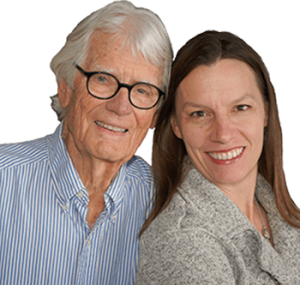One week into the New Year, and how are you doing on your resolutions? Most people make ambitious plans at the end of December and by this point can’t remember what they were. A few people overdo it, like those who commit to running a marathon before they’ve had success with a daily walk. If you are constantly worrying about how to strike the perfect balance, that’s also a waste of your time and no help for your heart.
The best habits for health are regular moderate exercise, a healthy diet, good sleep, and an upbeat outlook. First thing in the morning, every morning, is a natural time to check in with yourself. Step on a scale and make sure the number you see never goes above your set healthy weight. If it does, use intermittent fasting and moderate activity to get back in your zone. Take a moment to plan the good health elements of your day, making them enjoyable pursuits.
People often set their goals too high. The classic examples are patients who have been told by their doctors that they have blocked coronary arteries. Anyone having experienced and survived the crushing pain of a heart attack will know how living with the threat of impeding doom drives a commitment to action. A myocardial infarction becomes an “ego infarction” and they simply overdo it. Too much, too suddenly is risky business.
Regrettably, some patients become cardiac basket cases. Take the story of the doctor diagnosed with heart disease who lay in bed for hours on end listening with a stethoscope to the beat of the heart.
No sane doctor would advise this, nor that patients take up marathons. A common funny line goes, “Whenever I feel like exercising, I lie down until the feeling passes.” Good marks for humour, but not the right approach.
Being inactive is the same as being in decline. Muscles atrophy. Bones lose mass. Circulation weakens and less oxygen reaches vital organs. Mood is dampened. Social connections dissipate. Unless you are lying around outside in the sun, a vitamin D deficiency is probably involved. The list goes on.
So yes, go out and buy a new pair of running shoes to carry you through the year ahead. But you might consider calling them walking shoes.
There are a multitude of studies on how exercise impacts the human body, including those that compare intensive training with more moderate efforts. The findings show that you don’t need to push it with strenuous exercise. A study at Guelph University found that moderate exercise five days a week had better results in terms of reduced body fat and improved blood pressure than shorter periods of more intense exercise three days a week.
Regular moderate exercise is also known to help control blood sugar levels. Aerobic activities like going for a brisk walk will lower glucose levels, while weightlifting, for example, and other high intensity activities can have the opposite effect.
Getting outdoors for exercise has other benefits. Researchers have found changes in brain chemistry from a walk in the woods. People suffering from depression report it’s a do-it-yourself form of therapy. The cost of a pair of shoes and some time out of your day are far better investments in well-being than resorting to pharmaceutical drugs designed to treat one problem or another.
Here’s a challenge for the new year. Ask your doctor to tell you their preferred approach to fighting heart disease or depression. If they start to list the latest drugs, then walk, don’t run, for the woods!
Sign-up at www.docgiff.com to receive our weekly e-newsletter. For comments, contact-us@docgiff.com. Follow us on Instagram @docgiff and @diana_gifford_jones.


